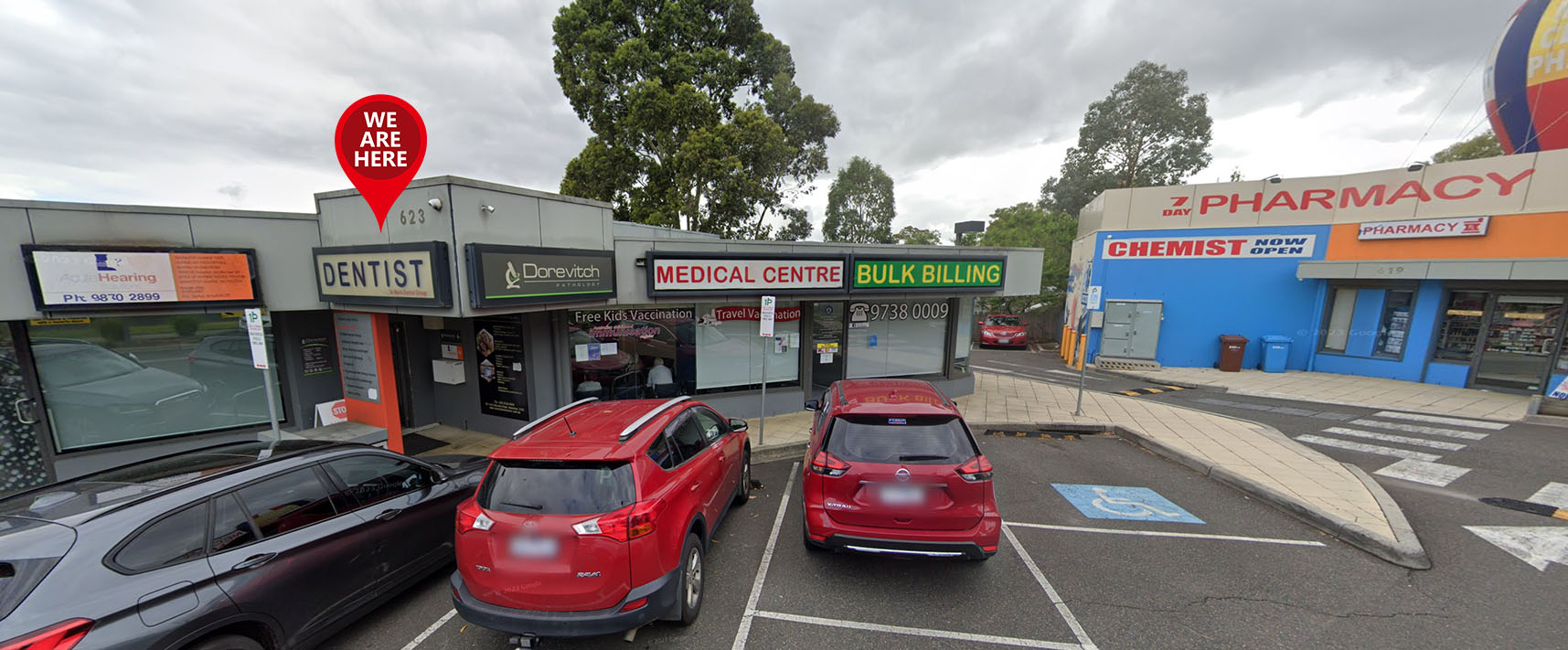Post Operative Care
After your wisdom tooth extraction, it is important to follow your dentists advice. Following their instructions will promote faster healing and avoid any complications.
Some of their recommendations may include:
- Not disturbing the wound, by avoiding touching the site and chewing on the opposite side of your mouth for the first 24 hours.
- Not smoking, as this can encourage bleeding.
- Not spitting or using a straw, as this can dislodge the blood clot and cause a dry socket.
- Using sterile gauze pads to control the bleeding and promote clot development.
- Using a cold pack to reduce the swelling.
- Avoiding strenuous activities for a week after the procedure.
- Avoiding alcohol for 24 hours after surgery.
- Eating soft foods and avoiding hot beverages and spicy foods for a few days after surgery.

Dietary Advice
The dentist will likely discuss your diet and oral hygiene habits and might demonstrate proper brushing and flossing techniques. Other topics for discussion might include lifestyle factors that may affect oral health and possible cosmetic improvements to your teeth.
During a dental exam, your dentist will also ask about any health problems you have or medications your taking and discuss how they might affect your oral health.
If you have diabetes, for example, your at increased risk of gum disease. Any medication that contributes to dry mouth can increase your risk of tooth decay.
If arthritis interferes with your ability to effectively brush your teeth, your dentist might show you how to insert the handle of your toothbrush into a rubber ball for easier use or recommend a powered or electric toothbrush.
If you have prosthetic replacements, such as dentures or bridges, your dentist will examine how well they fit and discuss the need for adjustments.

MOUTHGUARD
The dentist might recommend making a dental impression of one or both jaws to produce a replica of your teeth and oral tissue. This can help the dentist evaluate your bite or make a mouthguard or bleaching trays.
The dentist will fill a horseshoe shaped trays with a soft, gelatin-like material and place them over your upper or lower teeth. After a few minutes, the trays are removed and used to create a dental cast of your mouth.
ORAL HYGIENE INSTRUCTIONS
The dentist might recommend making a dental impression of one or both jaws to produce a replica of your teeth and oral tissue. This can help the dentist evaluate your bite or make a mouthguard or bleaching trays.
The dentist will fill a horseshoe shaped trays with a soft, gelatine-like material and place them over your upper or lower teeth. After a few minutes, the trays are removed and used to create a dental cast of your mouth.
HELPFUL RECOMMENDATIONS
The following are helpful recommendations:
- Flossing is the foundation for healthy gums, so floss your teeth once a day. Dental floss will get into areas between your teeth and under your gums that your toothbrush cannot.
- Slide the floss between your teeth and wrap it into a “C” shape around the base of the tooth and gently under the gum line.
- Wipe the tooth from base to tip two or three times. Be sure to floss both sides of every tooth.
- Brush your teeth twice a day, and make sure to brush your teeth after you floss, as this is a more effective method of cleaning your teeth. Use a soft bristled tooth brush, which is safer on your gums, in a circular motion that moves the brush bristles away from the gums. On the top arch, this would mean you are brushing in a circular direction which is top-down, on the bottom arch, you would be brushing in a bottom-to-top circular motion. Use care to not speed through brushing, taking at least 2-3 minutes to do a thorough job.
- Eat a well balanced diet. Avoid excessive snacking between meals especially sticky, sugary foods. Use either a fluoride or antiseptic rinse as directed by the dentist.
- Avoid smoking
- Brushing twice daily and regular flossing are excellent for maintenance between dental visits. However, a healthy mouth and beautiful smile requires routine general and preventative care to stay that way.
- Our practice offers hygiene care services that include fluoride, breathe control and also other treatments tat will keep your teeth healthy and happy.
- Keep your teeth and gums strong and disease free. Contact St Mark Dental Clinic today to book a check up and clean.


